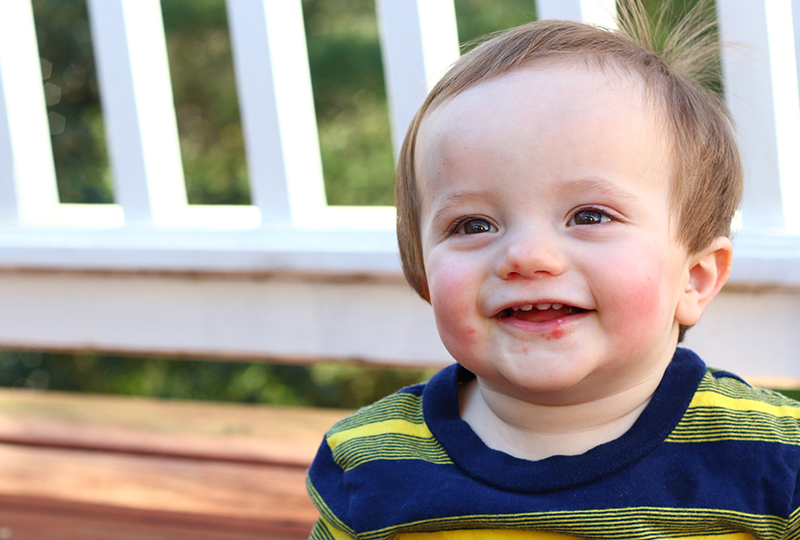The viral illness hand, food and mouth typically blossoms in the spring, causing fever, fussiness and ulcers through the fall.
I can speak from personal experience that hand, foot and mouth was hands-down (pun intended) the worst viral illness we had in my years as a parent. I remember that my son was particularly miserable when he had the illness, which is typically seen from late spring through early fall among preschool-aged children.
Every child is different, though. Some just get fever and muddle along just fine while others cannot drink anything and risk dehydration.
Symptoms
Hand, foot and mouth disease usually starts with one to two days of fever. It is then followed by fussiness, sore throat, decreased appetite, diarrhea, drooling and ulcers on the mouth, hands and feet.
Mouth ulcers are typically found around the mouth itself, in the back of the throat and on the roof of the mouth. A portion of children only get the mouth sores and the rest will get the classic blisters on the palms and soles of the feet. At times, we see a new strain that causes a rash on the entire body.
Treatment
Because it is a virus, antibiotics don’t work. Typical treatment is a tincture of time and managing symptoms. Mild pain can we managed with ibuprofen and acetaminophen, while more severe pain can be treated with Magic Mouthwash or prescription-strength painkillers. Most older children and parents are immune to the illness, although I have seen adults (and even coworkers) come down with it.
Duration
Symptoms last about four to five days. You can prevent the spread with good handwashing, particularly after changing diapers. This is one of the few illnesses where I get to be a fun doctor and prescribe Popsicles and Jell-O, because cold, soft foods help a lot with the discomfort. Someone with the illness can continue to be contagious for several weeks afterwards, but the peak time of being contagious is during the first few days. It can be dangerous to pregnant women, so contact your obstetrician if you are exposed while pregnant.
Although hand, foot and mouth is not particularly dangerous to most small children, it can be quite worrisome to caregivers because of the fussiness and dehydration risk. Be sure to contact your child’s pediatrician if you suspect this illness.
This post was written by Tobi Amosun, M.D., a board-certified pediatrician. She is a wife and mother of two who loves cooking, traveling and photography. She is fluent in Spanish and aspires that someday her house will look as fabulous as her Pinterest boards.


Vanderbilt’s Children’s After-Hours Clinics offer the convenience of a walk-in clinic with care provided by a board-certified pediatrician from Children’s Hospital. No appointment is necessary, but we recommend calling your pediatrician first. Learn more about services and find locations for Children’s Hospital After Hours Clinic locations.

